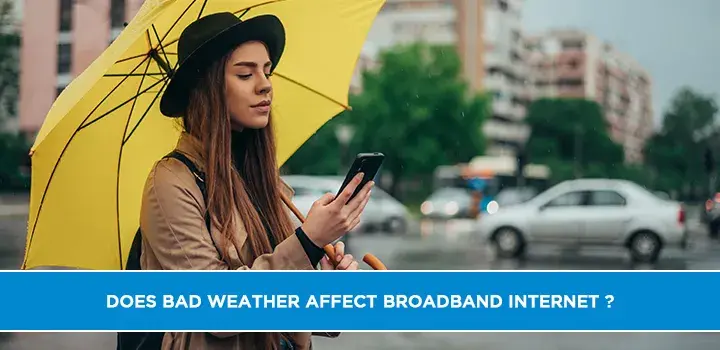Does Bad Weather Affect Broadband Internet?

Broadband Internet is an essential resource for modern life. It has the potential to transform how we work, play, and communicate. However, the amount of data that gets sent over broadband is growing at a rapid pace and it’s becoming a problem for network operators to keep up with this growth.
Bad weather can cause major disruptions in broadband Internet. It can also impact your productivity because of the time it takes to connect to your broadband provider or your mobile device. This affects how you work and play as well as how you communicate with others online.
How does Broadband Internet work?
Broadband Internet is a rapidly growing technology that allows users to connect to the Internet from anywhere. It is a combination of many technologies such as Wi-Fi, mobile data, satellite, and cable television.
Broadband Internet is one of the most important technological advancements in recent years. It has made it possible for us to live our lives without having to rely on a pay expensive subscription fees for using the Internet. This has made it possible for people who are not yet connected to broadband internet access at home or at work, to be able to use the internet anywhere they go and do anything online without any restrictions or limitations.
Here there is a number of internet services provider who offers the best Broadband internet services in your area. Here is the list of top internet services providers:
- Spectrum
- AT&T
- Cable One
- Altice USA
- Charter Communications
- Frontier Communications
- TDS Telecom
- Verizon
Dealing with Weather
Light weather such as a little rain or wind shouldn’t disrupt your Broadband internet connection too much, and it’s much more likely that having too many users logged on is causing a connection to become slow.
There is some variation between internet service providers on how your exact wiring is set up, and in most cases, fiber-optic internet is the least susceptible to lower speeds due to a higher number of users or outages due to weather.
Old Infrastructure and Storms
Older network lines are more likely to have connection issues that can be made worse during high winds, ice storms, or rain. It’s also possible for snow to build up on the lines and cause the connections to weaken or break, which will directly impact the internet speeds you experience.
Ice storms and snow build-up, in particular, can cause the cable lines to become disconnected from the local pole near your home, and this severs any connection you had to the internet.
What You Can Do
If your internet connection is slow or non-existent during bad weather, there’s typically very little that you can do. If you want to be thorough, try restarting your devices, including your modem and router, and see if that helps.
Restarting these devices may have no impact, and if you’re trying to use the internet during peak times in a populated area, that may be the cause of your slow connection and not the weather.
Call on (855) 210-8883 for a Broadband internet connection now!